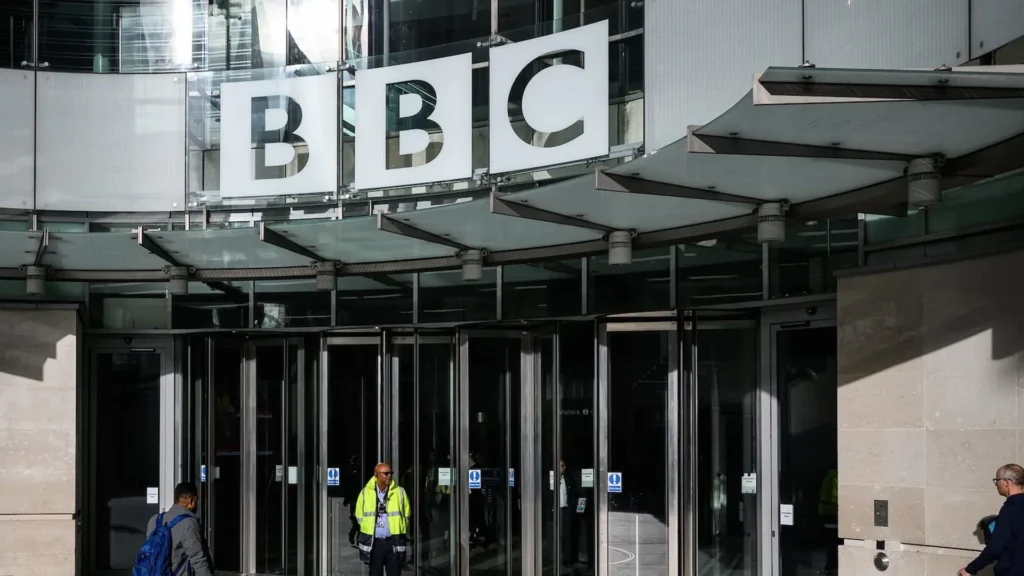
Newsletter Subscribe
Enter your email address below and subscribe to our newsletter

Enter your email address below and subscribe to our newsletter

Trump threatened a $1–5B lawsuit after the BBC apologized for an edited Panorama segment. We break down the facts, the legal odds, and the business implications for media and advertisers.
U.S. President Donald Trump says he will “likely” sue the BBC for $5 billion after the broadcaster admitted an editing “error of judgment” in a Panorama documentary that spliced parts of his Jan. 6, 2021 speech.
The BBC has issued a personal apology to Trump, while insisting there is no legal basis for damages. Reporting indicates the legal threat followed a demand letter that set a floor of $1 billion and subsequently escalated to as much as $5 billion.
According to multiple outlets, three excerpts of Trump’s White House Ellipse remarks were stitched together, omitting language his defenders say is exculpatory context. After criticism, the BBC said the edit was a mistake, apologized directly to Trump, and stated that while the edit created a misleading impression, the legal threshold for damages had not been met.
If filed in England and Wales, Trump could benefit from the UK’s Defamation Act 2013, which places the burden on publishers to justify contested meanings. Damages, however, are typically far below multibillion sums, and the serious harm test applies.
In the U.S., First Amendment protections and the actual malice standard make public‑figure defamation cases markedly harder to win.
Truth, an honest opinion, a public-interest publication, and prompt correction/apology can mitigate liability or damages. The BBC’s apology and review posture will likely be central to any defense.
UK defamation awards usually range from five to seven figures, with exceptional cases reaching into low eight figures when aggravated. $5 billion would be unprecedented and faces proportionality and causation hurdles even if liability were established.
Media Governance And Policy Backdrop
The Panorama episode arrives amid wider UK media‑trust debates, increased Ofcom oversight discussions, and newsroom workflow audits on editing chains, verbatims, and archive usage. Expect boardrooms to ask for: